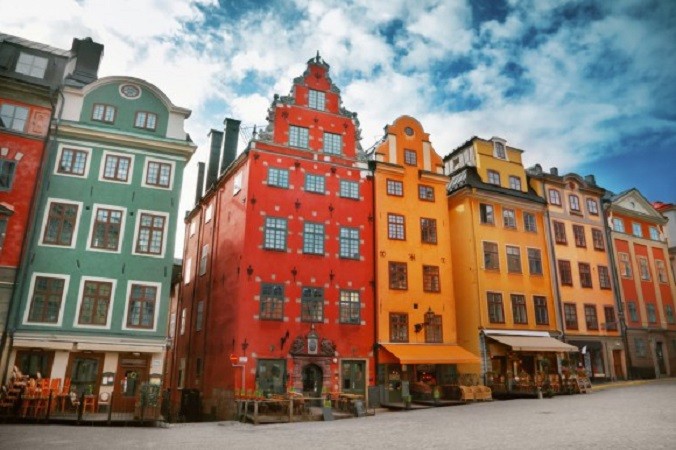When Swedish startup Klarna raised $1 billion in March, it put $10 million aside for a yet-to-be-launched new initiative that focuses on the key sustainability challenges worldwide.
Sebastian Siemiatkowski, cofounder of the most valuable startup in Europe, said it was time for Klarna to tackle bigger, more complex issues than global payments.
“I believe our industry has a responsibility to help in some way solve global sustainability issues, and I hope others will join Klarna in our ambition,” Siemiatkowski said.
While the scale is massive – many startups can only dream of raising $10 million for their business – it did not surprise anyone following the impact investing scene.
Impact investing – which covers investments in areas like halting climate change, reducing pollution and minimising social exclusion and illness – is one of the few sectors where European investments have outpaced developments in North America and Asia for years.
Europe is home to more than 60 dedicated impact-focused VC funds, while established European VCs are also increasingly backing impact startups.
European impact investments reached 5.3 billion euros last year, accounting for over 15% of total venture capital investments on the continent and tripling over a decade, according to Dealroom data. On the global level impact investments surpassed 19 billion euros last year but made up just 7% of all VC investments.
Within Europe, Sweden has the highest focus on impact-related startups, according to Atomico’s State of European Tech Report, with Sweden hosting 10% of all purpose-driven companies in Europe that received VC funding, compared to a 4.3% Swedish share for tech companies in general.
Last year Atomico Ventures, run by Swedish Skype co-founder Niklas Zennström, raised over 750 million euros to invest in mission-driven startups. “We’re guided by a simple belief: profit and purpose are mutually reinforcing, not mutually exclusive,” he said at a time.
In Sweden, as in many other countries, a lot of business activity is concentrated in the capital. Stockholm, which was nominated as the first green capital of Europe in 2010, has had a strong focus on sustainability for years.
This impetus to forge a truly sustainable city is deeply embedded in Stockholm’s DNA. For years the city has set ambitious climate goals while also being steeped in sustainable values such as equality and diversity, alongside a preference for flat hierarchies and a healthy work-life balance. These targets and values serve as an effective tool for Stockholm to attract and retain people and businesses successfully.
No wonder then that Stockholm is taking the lead on impact investing, with Stockholm-based impact startups raising almost a billion euros last year (961 million). This represents 18% of all the capital raised by purpose-driven startups in Europe in 2020.
“I’m very proud to work in a city that has been focusing on environmental issues for a very long time. There is a lot of construction going on in Stockholm and as a prerequisite for anyone who wants to build anything, you have to meet extremely high environmental standards. Also, I think that the city, and we as Stockholm Business Region, can function as a neutral ground to get the different players together in an environment where it is very clear that we have to solve these issues. This makes Stockholm a great place to start your startup,” Staffan Ingvarsson, CEO of Stockholm Business Region, said at Arctic15 Stockholm.
While Stockholm and Sweden can be proud to have taken the lead on sustainability, there is still plenty of room for improvement. Some 77% of impact startups in the Nordics target local markets, and 63% focus on only 4 Sustainable Development Goals set by the United Nations, and investments in global solutions are still marginal in comparison.
“Simply avoiding harm is not enough when making an investment decision. We genuinely believe that in order to achieve Sustainable Development Goals, in order to reach net-zero reduced carbon emissions we have to actively invest in solutions and technologies that genuinely bring a positive outcome for people and the planet,” said Melanie Hayes, Managing Partner at Bethnal Green Ventures.





